Baptists form a major branch of evangelical Protestantism distinguished by baptizing only professing Christian believers and doing so by complete immersion. Baptist churches generally subscribe to the doctrines of soul competency, sola fide, sola scriptura and congregationalist church government. Baptists generally recognize two ordinances: baptism and communion.

The Christian Church (Disciples of Christ) is a mainline Protestant Christian denomination in the United States and Canada. The denomination started with the Restoration Movement during the Second Great Awakening, first existing during the 19th century as a loose association of churches working towards Christian unity, then slowly forming quasi-denominational structures through missionary societies, regional associations, and an international convention. In 1968, the Disciples of Christ officially adopted a denominational structure at which time a group of churches left to remain nondenominational.

The Second Great Awakening was a Protestant religious revival during the late 18th to early 19th century in the United States. It spread religion through revivals and emotional preaching and sparked a number of reform movements. Revivals were a key part of the movement and attracted hundreds of converts to new Protestant denominations. The Methodist Church used circuit riders to reach people in frontier locations.

Charles Edward Blake Sr. is an American minister and retired pastor who served as the Presiding Bishop and leader of the Church of God in Christ, a 6 million-member Holiness Pentecostal denomination, that has now grown to become one of the largest predominantly African American Pentecostal denominations in the United States, from 2007 to 2021. On March 21, 2007, he became the Presiding Bishop of the Church of God in Christ, Inc., as a result of Presiding Bishop Gilbert E. Patterson's death. In a November 2007 special election, he was elected to complete the unexpired term of his predecessor as Presiding Bishop. In November 2008, Bishop Blake was re-elected to serve a four-year term as Presiding Bishop. In November 2012, Bishop Blake was re-elected again to serve a four-year term as the Presiding Bishop. He was reelected to a third term as Presiding Bishop on November 15, 2016. On October 23, 2020, Bishop Blake announced that he would not seek a re-election as Presiding Bishop nor as a member of the General Board and that he would retire from the Office of Presiding Bishop and from the General Board in 2021. He officially retired on March 19, 2021, and was succeeded by Bishop J. Drew Sheard, Sr. as Presiding Bishop on March 20, 2021.
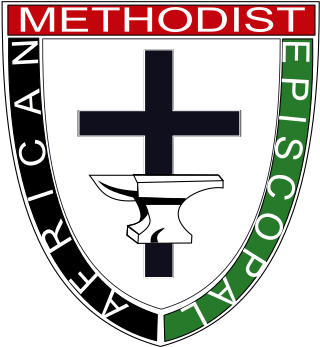
The African Methodist Episcopal Church, usually called the AME Church or AME, is a Methodist Black church. It adheres to Wesleyan-Arminian theology and has a connexional polity. The first independent Protestant denomination to be founded by Black people, AME welcomes and has members of all ethnicities.
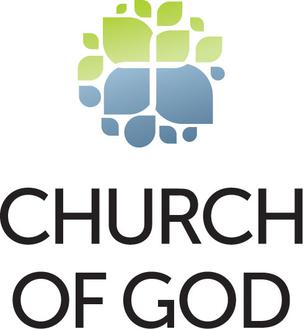
The Church of God , also called the Church of God Ministries, is an international holiness Christian denomination with roots in Wesleyan-Arminianism and also in the restorationist traditions. The organization grew out of the evangelistic efforts of several Holiness evangelists in Indiana and Michigan in the early 1880s, most notably Daniel Sidney Warner.

The World Assemblies of God (AG), officially the World Assemblies of God Fellowship, is an international Pentecostal denomination.
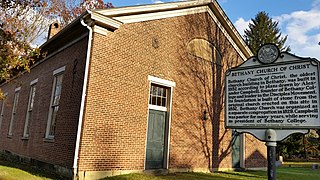
The Churches of Christ, also commonly known as the Church of Christ, is a loose association of autonomous Christian congregations located around the world. Typically, their distinguishing beliefs are that of the necessity of baptism for salvation and the prohibition of musical instruments in worship. Many such congregations identify themselves as being nondenominational. The Churches of Christ arose in the United States from the Restoration Movement of 19th-century Christians who declared independence from denominations and traditional creeds. They sought "the unification of all Christians in a single body patterned after the original church described in the New Testament."
The Orthodox Presbyterian Church (OPC) is a confessional Presbyterian denomination located primarily in the United States, with additional congregations in Canada, Bermuda, and Puerto Rico. It was founded by conservative members of the Presbyterian Church in the United States of America (PCUSA), who objected to the rise of Liberal and Modernist theology in the 1930s. The OPC is considered to have had an influence on evangelicalism far beyond its size.
Black Hebrew Israelites are a new religious movement claiming that African Americans are descendants of the ancient Israelites. Some sub-groups believe that Native and Latin Americans are descendants of the Israelites as well. Black Hebrew Israelites combine elements to their teaching from a wide range of sources to varying degrees. Black Hebrew Israelites incorporate certain aspects of the religious beliefs and practices of both Christianity and Judaism, though they have created their own interpretation of the Bible, and other influences include Freemasonry and New Thought, for example. Many choose to identify as Hebrew Israelites or Black Hebrews rather than Jews in order to indicate their claimed historic connections.
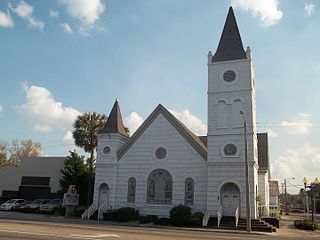
The black church is the faith and body of Christian denominations and congregations in the United States that predominantly minister to, and are also led by African Americans, as well as these churches' collective traditions and members. The term "black church" may also refer to individual congregations, including in traditionally white-led denominations.

The Church of God and Saints of Christ is a Black Hebrew Israelite new religious group established in Lawrence, Kansas, in the United States, by William Saunders Crowdy in 1896. William Crowdy began congregations in several cities in the Midwestern and Eastern United States, and sent an emissary to organize locations in at least six African countries. The congregation later established locations in Cuba and the West Indies.

Religion of black Americans refers to the religious and spiritual practices of African Americans. Historians generally agree that the religious life of black Americans "forms the foundation of their community life". Before 1775 there was scattered evidence of organized religion among black people in the Thirteen Colonies. The Methodist and Baptist churches became much more active in the 1780s. Their growth was quite rapid for the next 150 years, until their membership included the majority of black Americans.

The Assemblies of God USA (AG), officially The General Council of the Assemblies of God, is a Pentecostal Christian denomination in the United States founded in 1914 during a meeting of Pentecostal ministers at Hot Springs, Arkansas, who came from a variety of independent churches and networks of churches. The Assemblies of God is a Finished Work Pentecostal denomination and is the U.S. branch of the World Assemblies of God Fellowship, the world's largest Pentecostal body. With a constituency of 2,928,143 in 2022, the Assemblies of God was the ninth largest Christian denomination and the second largest Pentecostal denomination in the United States.
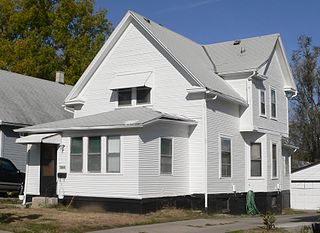
The Lizzie Robinson House, located at 2864 Corby Street in North Omaha, Nebraska, United States, is the location of the first Church of God in Christ congregation in the state. This was a Pentecostal denomination founded in the late 19th century in Lexington, Mississippi, by Charles Price Jones and Charles Harrison Mason; the latter of whom led the church for decades.
Trinity United Church of Christ is a predominantly African-American megachurch with more than 8,500 members. It is located in the Washington Heights community on the South Side of Chicago. It is the largest church affiliated with the United Church of Christ, a predominantly white Christian denomination with roots in Congregationalism, which historically branched from early American Puritanism.
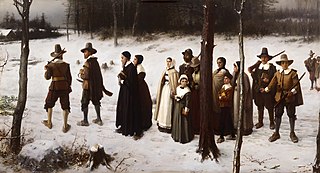
Protestantism is the largest grouping of Christians in the United States, with its combined denominations collectively comprising about 43% of the country's population in 2019. Other estimates suggest that 48.5% of the U.S. population is Protestant. Simultaneously, this corresponds to around 20% of the world's total Protestant population. The U.S. contains the largest Protestant population of any country in the world. Baptists comprise about one-third of American Protestants. The Southern Baptist Convention is the largest single Protestant denomination in the U.S., comprising one-tenth of American Protestants. Twelve of the original Thirteen Colonies were Protestant, with only Maryland having a sizable Catholic population due to Lord Baltimore's religious tolerance.

James Francis Marion Jones, also known as the Rt. Rev. Dr. James F. Jones, D.D and as Prophet Jones, was an American black religious leader, televangelist, faith healer and pastor who led the religious movement that developed into the Church of Universal Triumph, Dominion of God, Inc. from 1938 until his death in 1971.
The Church of Universal Triumph, Dominion of God is a predominantly African American Holiness Pentecostal church. It began as a breakaway congregation of the Detroit branch of the Triumph the Church and Kingdom of God in Christ in the 1940s. It was founded by James F. Jones, often known as Prophet Jones.
Frank S Cherry was the founder and leader of one of the early Black Hebrew Israelite groups in the United States.













